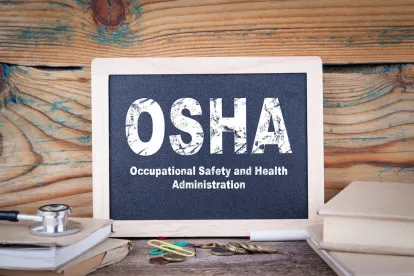The Occupational Safety and Health Administration (OSHA) has previously stated that temporary workers are at an “increased risk of work-related injury and illness.” Among other reasons, OSHA has expressed concerns that temporary workers are sometimes not included in employers’ usual safety training and assessments. Because of that stated vulnerability, OSHA often focuses on temporary worker status in accident and injury investigations as part of its Temporary Worker Initiative and its Multi-Employer Citation Policy. This means that staffing agencies and employers that use staffing agencies to meet their personnel needs (i.e., “host employers”) need to be aware of best practices related to temporary worker safety and be prepared for the issue if OSHA comes knocking.
OSHA takes the position that staffing agencies and host employers are “joint employers” of temporary workers. The Occupational Safety and Health Review Commission, which decides disputes over citations issued by OSHA against alleged employers, generally agrees. For example, in one 2007 case, the agency found that “regardless of whether the [the host employer] had any sort of employment relationship with the security personnel supplied by [a specialized staffing agency], the degree of control [the staffing agency] retained over its contract security personnel compels the conclusion that [the staffing agency] remained their employer in these circumstances and was properly cited as such under the OSH Act”). Against that legal backdrop, OSHA can cite both staffing agencies and host employers for violative conditions at worksites.
So what can staffing agencies and host employers do to address safety hazards for temporary workers in the workplace and reduce their OSHA liability? Human resources and safety representatives of both host employers and staffing companies should:
- Work Together to Understand and Specify Who Is Doing What: One often overlooked feature in service contracts between staffing agencies and host employers is which employer is responsible for particular safety-related duties, such as the provision of personal protective equipment (PPE). OSHA suggests that if PPE is required, “the contract should state what equipment will be needed and which employer will supply it.” Generally speaking, the contract should also define the tasks to be performed and which employer is responsible for communicating the temporary workers’ responsibilities.
- Communicate Regularly: Staffing agencies should inquire about the conditions and hazards associated with worksites and tasks—but need not become experts in all workplace hazards. Host employers should request, and staffing agencies should provide, documents to show what training the temporary workers have had and which competencies have been demonstrated related to the tasks to be performed at the worksite before work begins. Further, while the job is ongoing, host employers should promptly notify staffing agencies of injuries sustained by temporary workers. In this way, companies cooperate in the resolution of safety hazards.
- Provide Appropriate Training Before and During Work: Host employers are tasked with providing training tailored to the particular tasks at the worksite, and staffing agencies should, if appropriate, provide generalized safety and other training prior to the beginning of the work. The goal is to provide the same training to temporary workers that host employers require of and provide to permanent workers.
- Record and Report Injuries Appropriately: Under OSHA regulations, whichever company supervises the temporary workers on a day-to-day basis should record injuries sustained by temporary workers. To avoid confusion (and the problematic assumption that the other is recording the injury), the contract between the staffing agency and the host employer should specify who provides the day-to-day supervision and, more specifically, who will record any injuries to comply with OSHA regulations.
This is certainly not an exhaustive list of all best practices, but it represents key considerations for reducing OSHA liability and maintaining a safe workplace for temporary workers. In all cases though, if OSHA does come knocking, it behooves staffing agencies and host employers alike to engage a labor and employment attorney experienced in navigating OSHA investigations.



 />i
/>i

